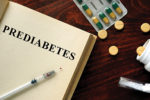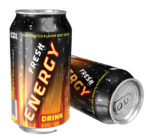Sunshine & mental health, high protein diets, sugary drinks and more…
Posted on November 30, 2016 by bob in NewsUCanUse
Sunshine and mental health
 If you soak up enough sun, your level of emotional distress should remain stable. Take away sun time, and your distress can spike. In other words, sunshine matters. A lot. The idea isn’t new, but according to a recent Brigham Young University study, when it comes to your mental and emotional health, the amount of time between sunrise and sunset is the weather variable that matters most.
If you soak up enough sun, your level of emotional distress should remain stable. Take away sun time, and your distress can spike. In other words, sunshine matters. A lot. The idea isn’t new, but according to a recent Brigham Young University study, when it comes to your mental and emotional health, the amount of time between sunrise and sunset is the weather variable that matters most.
Your day might be filled with irritatingly hot temperatures, thick air pollution, and even rainclouds, but that won’t necessarily get you down. But without adequate sun time your distress can spike. This applies to the clinical population at large, not just those diagnosed with Seasonal Affective Disorder. The BYU study analyzed several meteorological variables including wind chill and speed, rainfall, solar irradiance, and temperature. (Brigham Young University, published in the Journal of Affective Disorders)
High-protein diet, heart failure in older women

Women over the age of 50 who follow a high-protein diet could be at higher risk for heart failure, especially if much of their protein comes from meat, according to preliminary research presented at the American Heart Association’s Scientific Sessions 2016.
Researchers evaluated the self-reported daily diets of 103,878 women between the ages of 50 and 79 years, from 1993 to 1998. The rate of heart failure for women with higher total dietary protein intake was significantly higher compared to the women who ate less protein daily or got more of their protein from vegetables. The findings were true regardless of age, race or ethnicity, level of education, or the presence of one or more conditions, including high blood pressure, diabetes, and coronary artery disease.
“Our findings should be interpreted with caution,” said study author Mohamad Firas Barbour, M.D., “but it appears that following a high-protein diet may increase heart failure risk.” (American Heart Association)

Sugary beverages and pre-diabetes
Regular consumption of sugar-sweetened beverages is associated with increased risk of pre-diabetes and increased insulin resistance, an epidemiological analysis of data from1,685 adult Americans finds. Drinking on average one can of soda per day brings a 46% higher risk of developing pre-diabetes compared to those who consume no, or low quantities, of sugary beverages.
No associations was found between diet soda consumption and risk of pre-diabetes or increased insulin resistance. However, the research team notes previous studies on associations between diet soda and risk of type 2 diabetes have produced mixed results, and further studies are needed to reveal the long-term health impact of artificially sweetened drinks. (Tufts University)
Still at risk even if you exercise

Studies show spending excessive amounts of time sitting or watching TV is linked with chronic health issues such as heart disease and type 2 diabetes, even if you get the American Heart Association recommended 150 minutes a week of moderate-intensity exercise.
There appears to be independent health effects associated with excessive sitting, even for those meeting the 150-minutes-a-week guideline. Studies that explore the association between exercise and sedentary behavior consistently show that replacing sitting time with even light activity (moderate-to-vigorous activity is preferred) can have a positive effect on health in the long term. (American Physiological Society)
![]()
And you thought 2015 was hot!
It’s very likely 2016 will be the hottest year on record, with global temperatures higher than the record-breaking 2015 temperatures. Preliminary data shows 2016’s global temperatures are approximately 1.2 degrees Celsius (2.1 degrees Fahrenheit), above pre-industrial levels, according to an assessment by the World Meteorological Organization.
Long-term climate change indicators are also record breaking, including an increase is major greenhouse gases, low levels of arctic sea ice, and significant and very early melting of the Greenland ice sheet. Ocean heat was also boosted by the El Niño event. The deadliest event so far in 2016 has been Hurricane Matthew, Haiti’s worst humanitarian emergency since the 2010 earthquake. Throughout the year, extreme weather led to considerable socio-economic losses in all regions of the world. (World Meteorological Organization)
Sleep and sugary drinks
People who sleep five or fewer hours a night are likely to also drink significantly more sugary caffeinated sodas and energy drinks, according to a new study of more than 18,000 adults. Study authors emphasize it’s not yet clear whether drinking sugar-sweetened beverages causes people to sleep less, or if sleep deprivation makes people seek out more sugar and caffeine to stay awake. Previous research suggests both could be true.
A growing body of research has linked sugary beverage consumption to a cluster of conditions including high blood sugar and excess body fat, which can lead to obesity and type 2 diabetes. Lack of sleep is also associated with a higher risk for these conditions. Previous research has strongly indicated sleep deprivation increases hunger, particularly hunger for sugary and fatty foods. (University of California, San Francisco)









